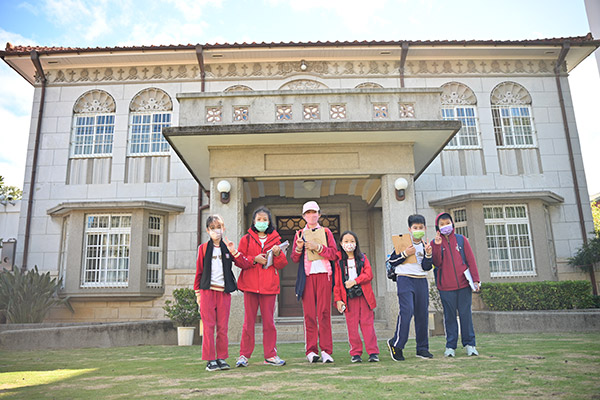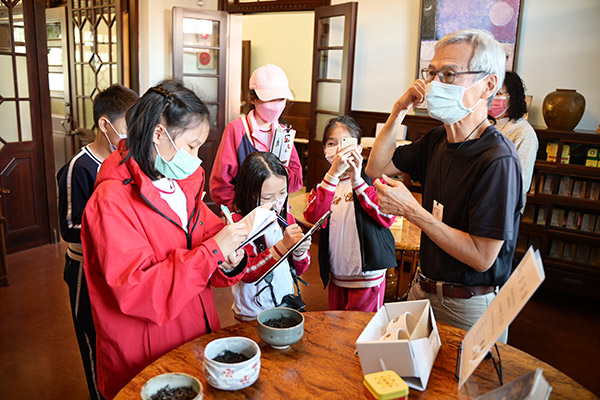photo by our team
▪History
During Japan’s Colonial Ruling era, Taiwan was one of the major tea exporters in the world. The tea business celebrity, Jiang A Xin, was the descendant of the distinguished Jiang family in Beipu. Jiang A Xin, who went to Taipei Mandarin School and then Meiji University in Tokyo to study, had strong ambition and a global perspective on the tea industry. Therefore, he dedicated his life to his tea kingdom and promoted his product globally. At the age of 31, he established Yong Guang Tea Leaf Company, which was the most prominent one in Northern Taiwan.
Jiang A Xin made an effort in the tea business; on the other hand, he valued education. He donated lands to Shishan Elementary School and Beipu Middle School. He also donated essential equipment and facilities for the schools. So, he was not only a businessman but also an educational philanthropist.
In 1946, in order to receive foreign visitors, Mr. Jiang A Xin hired people and spent 3 years constructing the Jiang A Xin Mansion. However, the splendid mansion encountered Jiang A Xin's business downturn. After World War Ⅱ, the Southeast Asia tea industry started manufacturing tea again. Taiwan lost its position and advantages in the global tea industry. In 1965, Jiang A Xin went bankrupt. Mr. Jiang A Xin was an optimistic and generous person, even though he was facing financial problems. Before his bankruptcy, he didn't lay his employees off and kept collecting tea leaves from tea farmers. ‘ I shouldn’ t get them involved in my trouble. ’ said he.
Afterwards the Jiang family moved to Taipei and the mansion was mortgaged to the Taiwan Cooperative Bank. In 2012, the bank was going to auction the Jiang A Xin mansion. The offspring of the family reached an unanimous decision of purchasing the mansion back for commemorating Mr. Jiang A Xin and preserving the craftsmanship of the building. They all worked together indefatigably to raise funds. Fortunately, the Jiang Family also gained help from Mr. Wu Dong Sheng, Jin Guang Fu Cultural and Educational Foundation’ s chairman of the board. Eventually they spent 80 million NTD to purchase back the mansion.
The descendants of the Jiang family said, ‘ The meaning of retrieving the mansion back to the family is that “ We are home again. ” ’ Restoring the ownership of the mansion glorified Mr. Jiang A Xin’s reputation and strengthen the bonds between the members of the family. Once a year, they hold a reunion for employees of Yong Guang Company and all Jiang’s descendants in the mansion. The Jiang’s descendants said, ‘ Grandpa Jiang A Xin's interaction with others has influenced people around him. The solidarity between family and community is the culture of Yong Guang Company. We are so proud to be the offspring of Jiang A Xin.
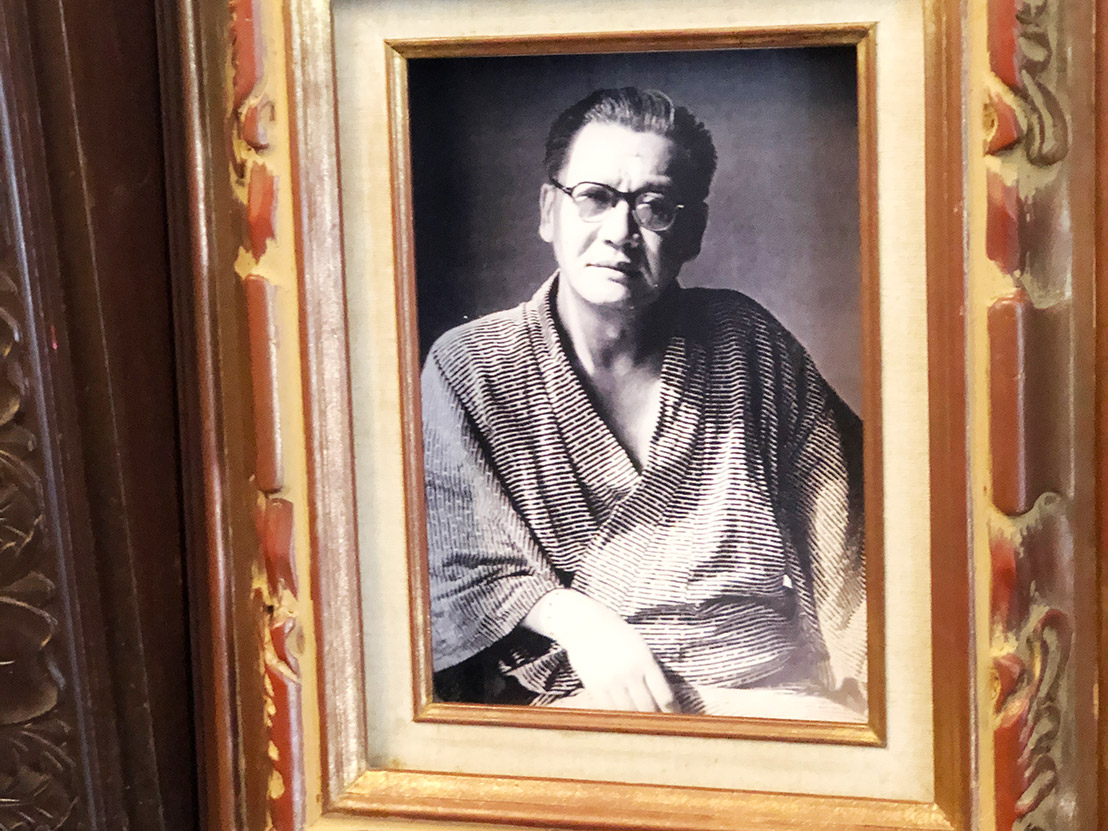
photo by our team
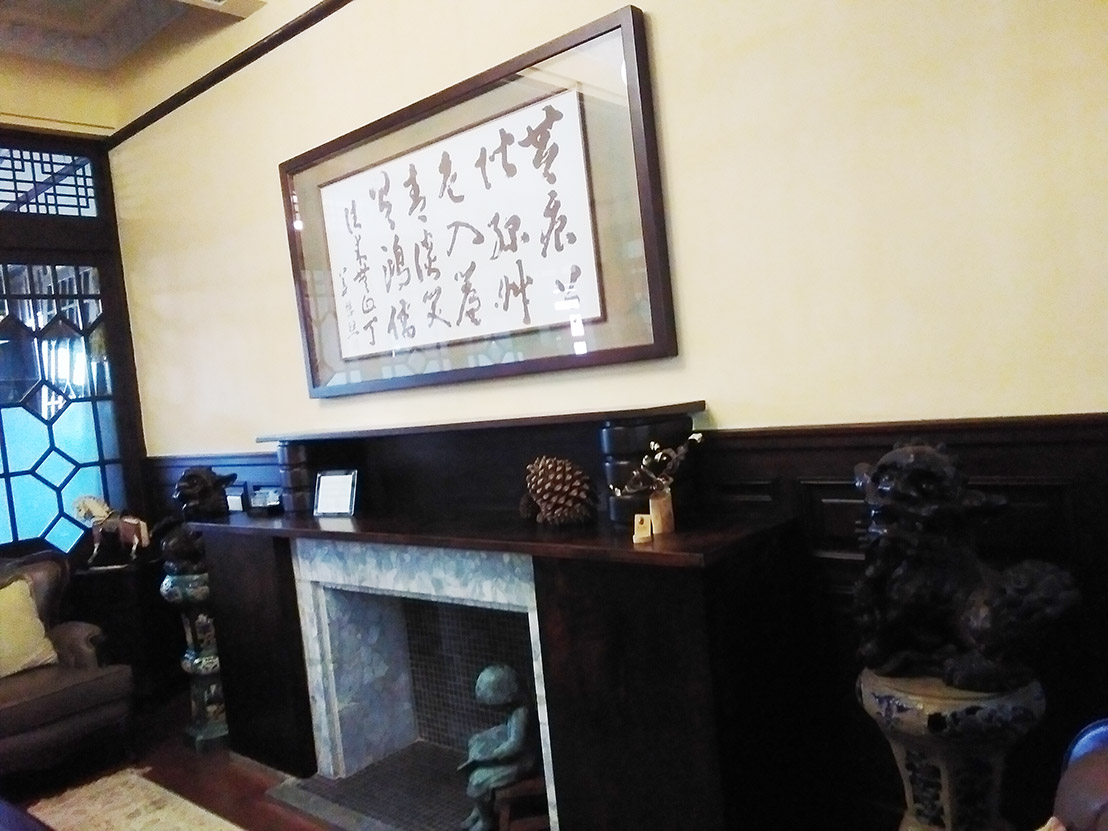
photo by our team
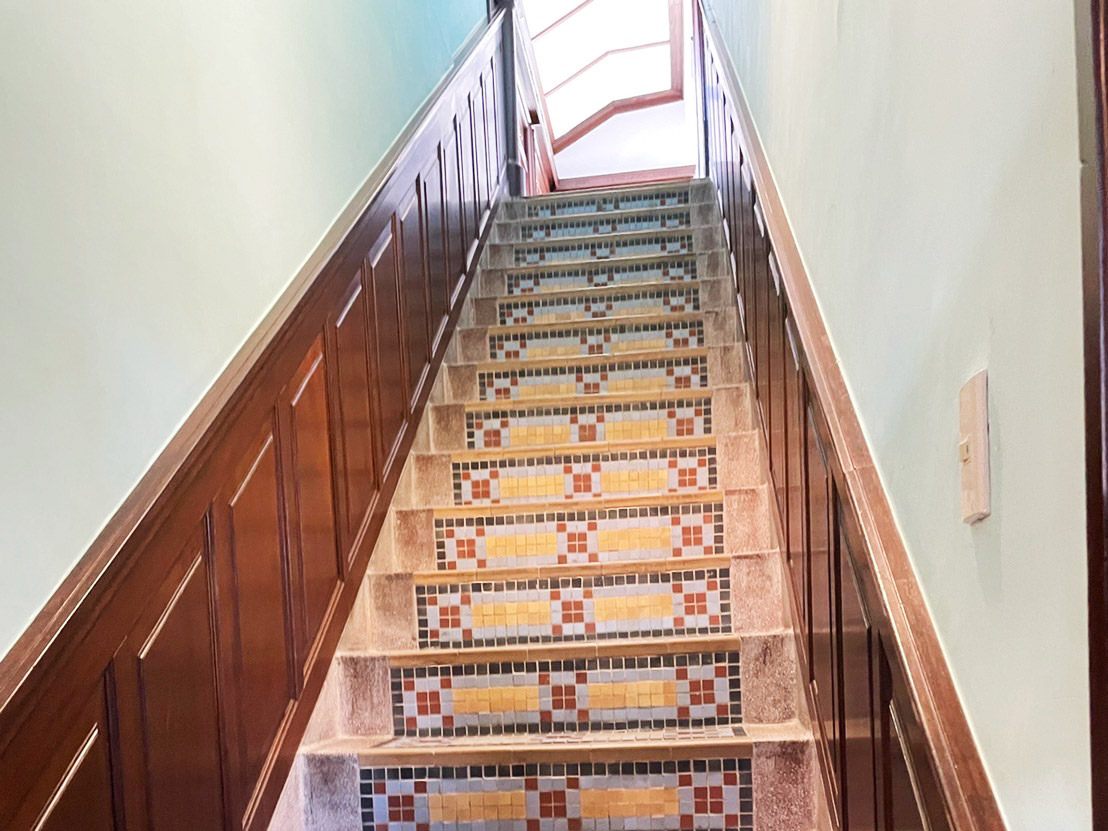
photo by our team
▪Field research
The Jiang A Xin Mansion witnessed the rise and decline of the Taiwan tea industry. The mansion’s exterior is baroque style. The walls were made based on the method of facial cut terrazzo. When we looked up to the second floor, the decor near the eaves was elegant European sculptures. After that, we started to explore inside the mansion. The mansion was bright and had good air circulation. When the architect was building the mansion, Mr. Jiang A Xin requested the architect that the house needed to be well lighted and ventilated. The inner decor and sculpture are very exquisite as well. The drawing room was divided by ground glass screens for privacy and lighting. There is also a western style mantelpiece in front of the room. Then we went to the sound proofing music hall where many musicians liked to perform. After that, we stepped on the delicate mosaic stairs heading to the family room. On the second floor we can find many ventilations on the ceiling, that’s why the house is well air circulated. There are some patterns like turtles and coins on the wooden decor. While turtles represent longevity, coins represent fortune. Next, we walked into the reception room, The windows provided an amazing view of the countryside. In the hall of worshiping, a fake door is set to make the room look symmetrical. In the bedroom, there was a bed with 8 legs which had been sent to Canada when Jiang A Xin's granddaughter studied abroad. It was sent back in 2019. The pillow was made of wood, which means you can rest on it with ease. In the study room, we watched the documentary film which was the history of the mansion. Before we left the mansion, the Jiang family showed us the tea cans from Yong Guan Company, some of them already got rusty.
During our visit, we were served tea as well. The tea’s name is Pomfong tea or bragging tea in Taiwanese. It was said that the tea was invented accidentally. During Japan's colonial ruling era, a farmer didn’t want to waste his tea leaves which had insect bites created by tea green leafhoppers. He sold his tea anywhere, but to his surprise the tea became popular. He told people the tiny insect bites made his tea have a special flavor. People didn't believe him and thought that he was just bragging. That's why the tea's name stands for “ Bragging Tea” in Taiwanese.
photo by our team
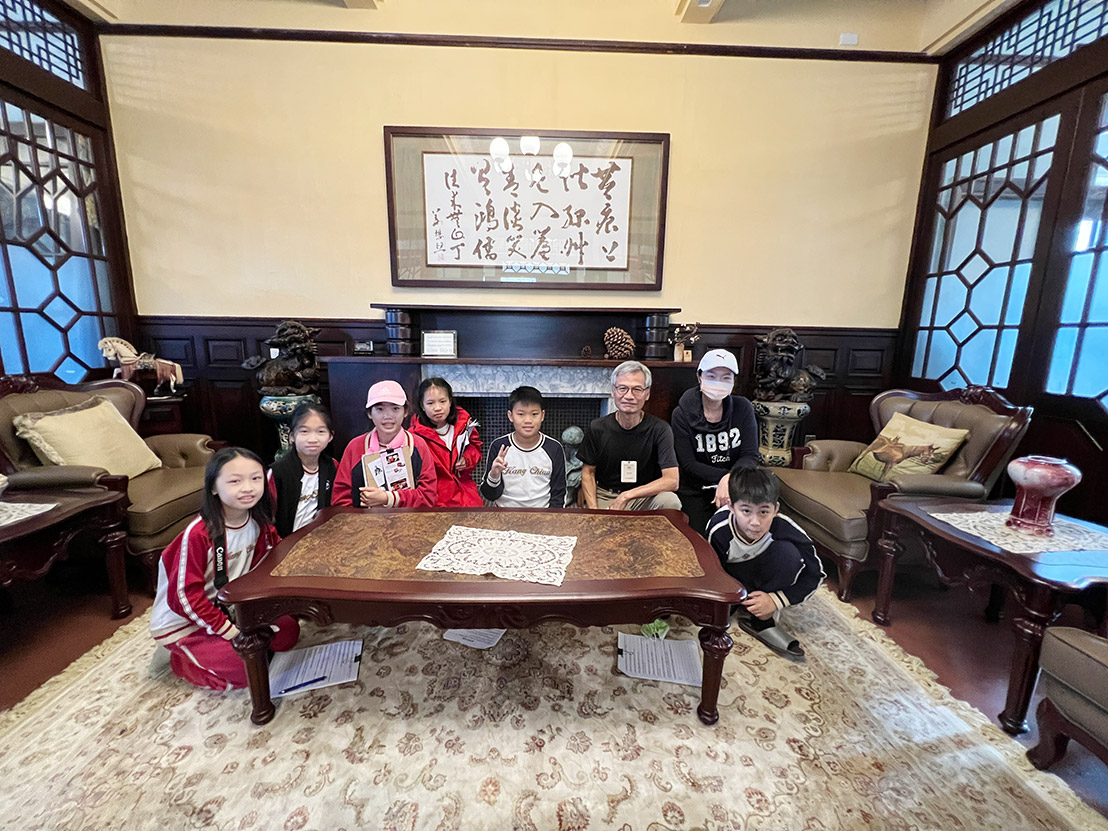
photo by our team
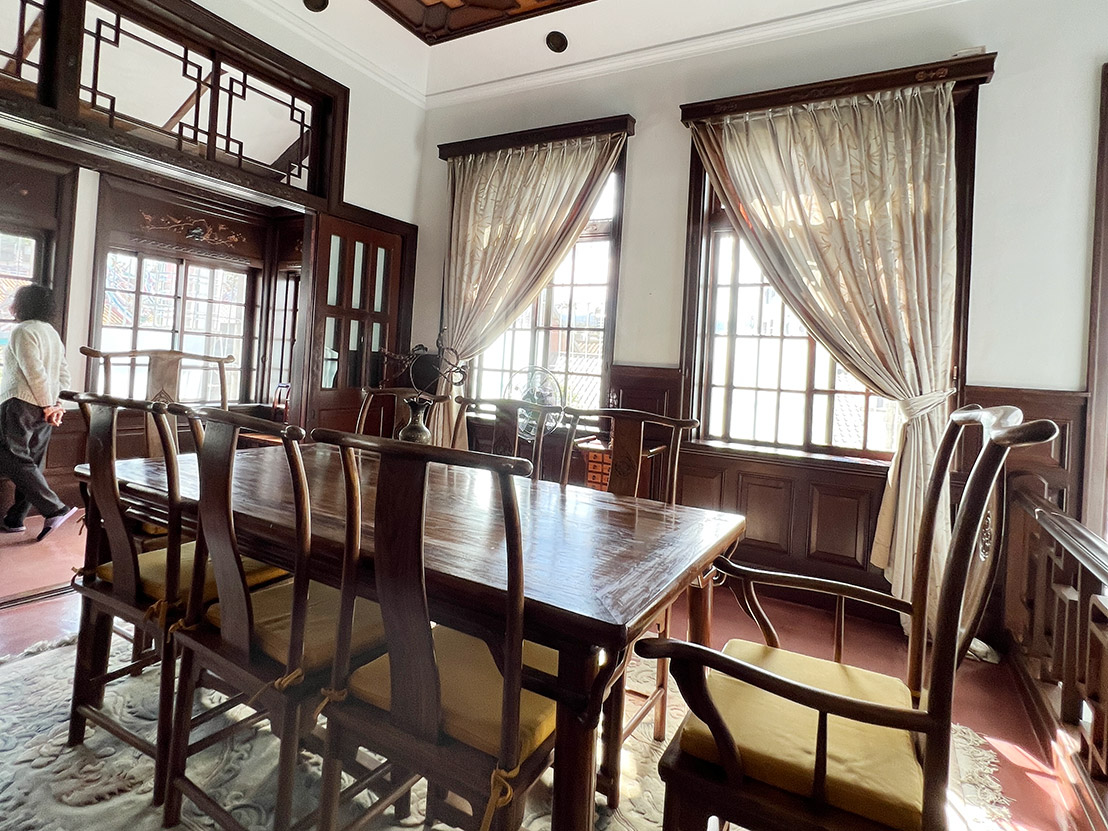
photo by our team
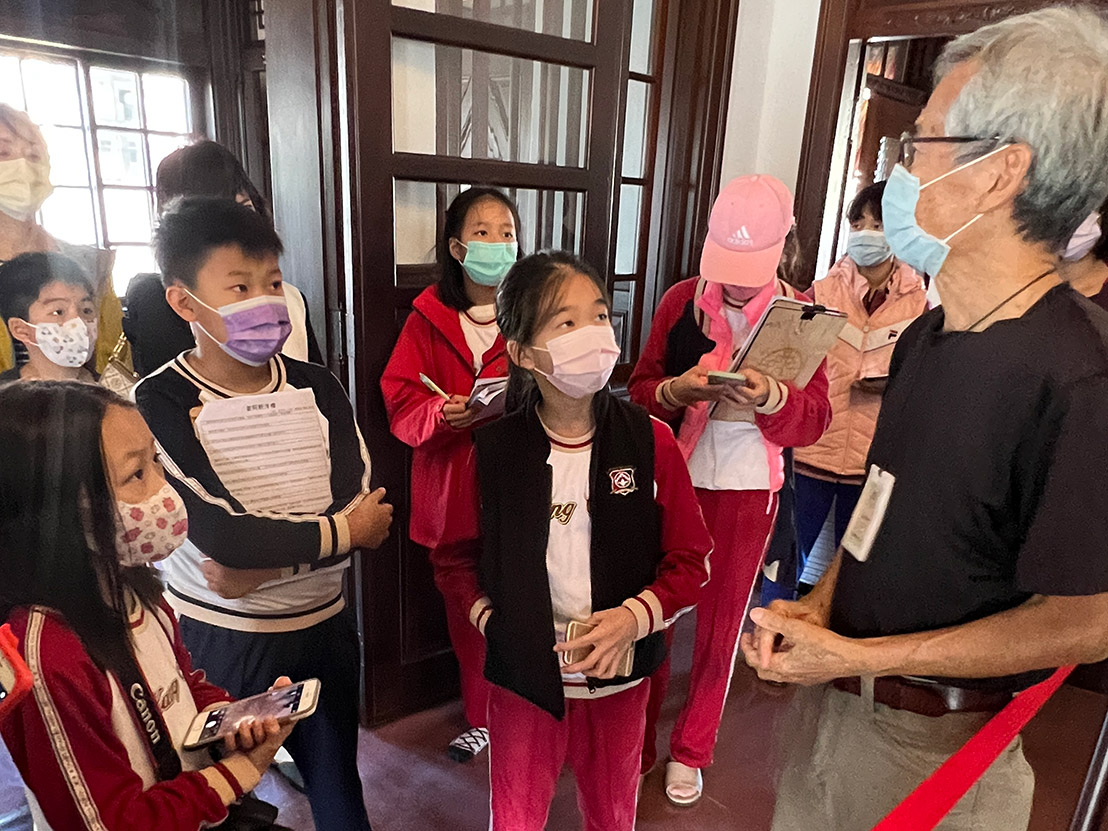
photo by our team
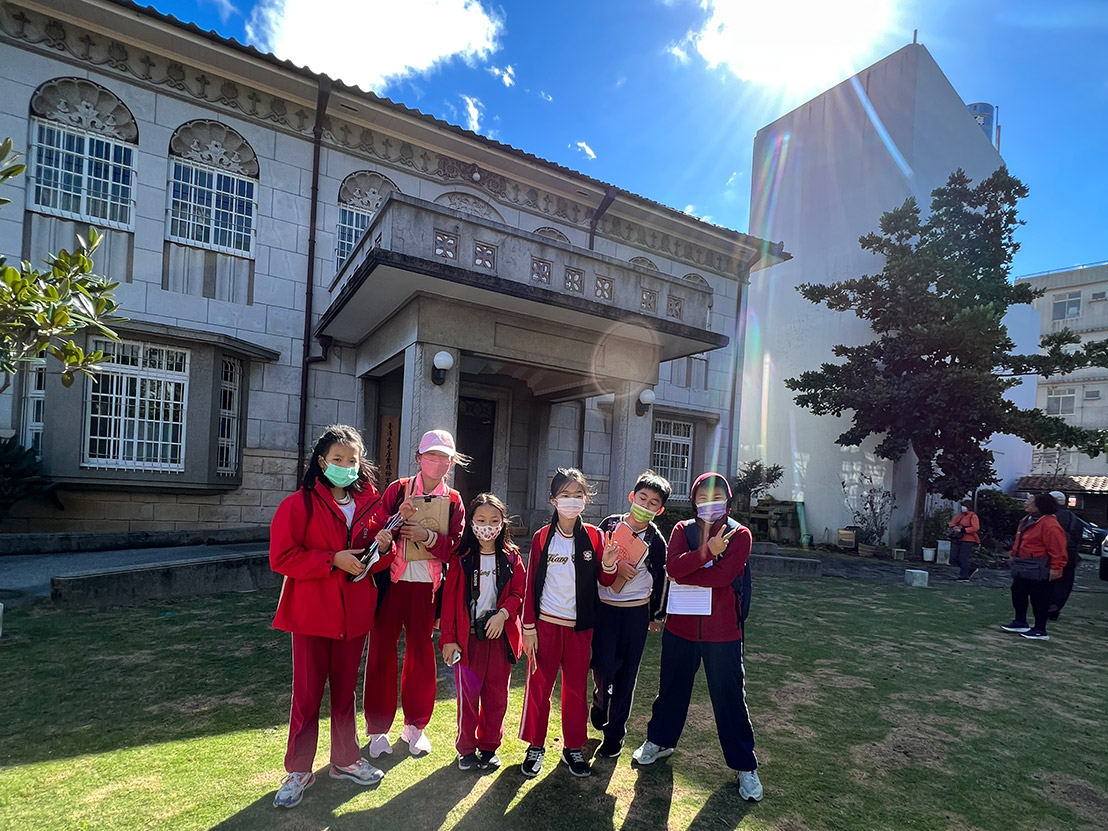
photo by our team
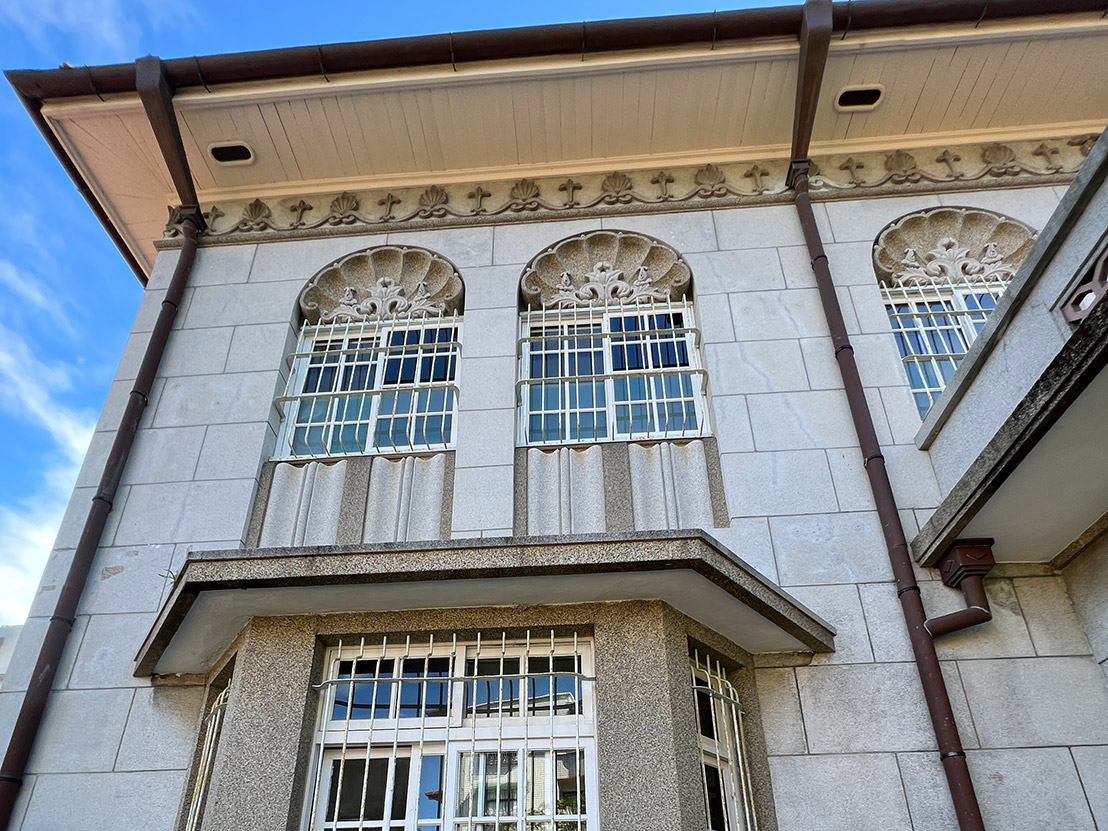
photo by our team
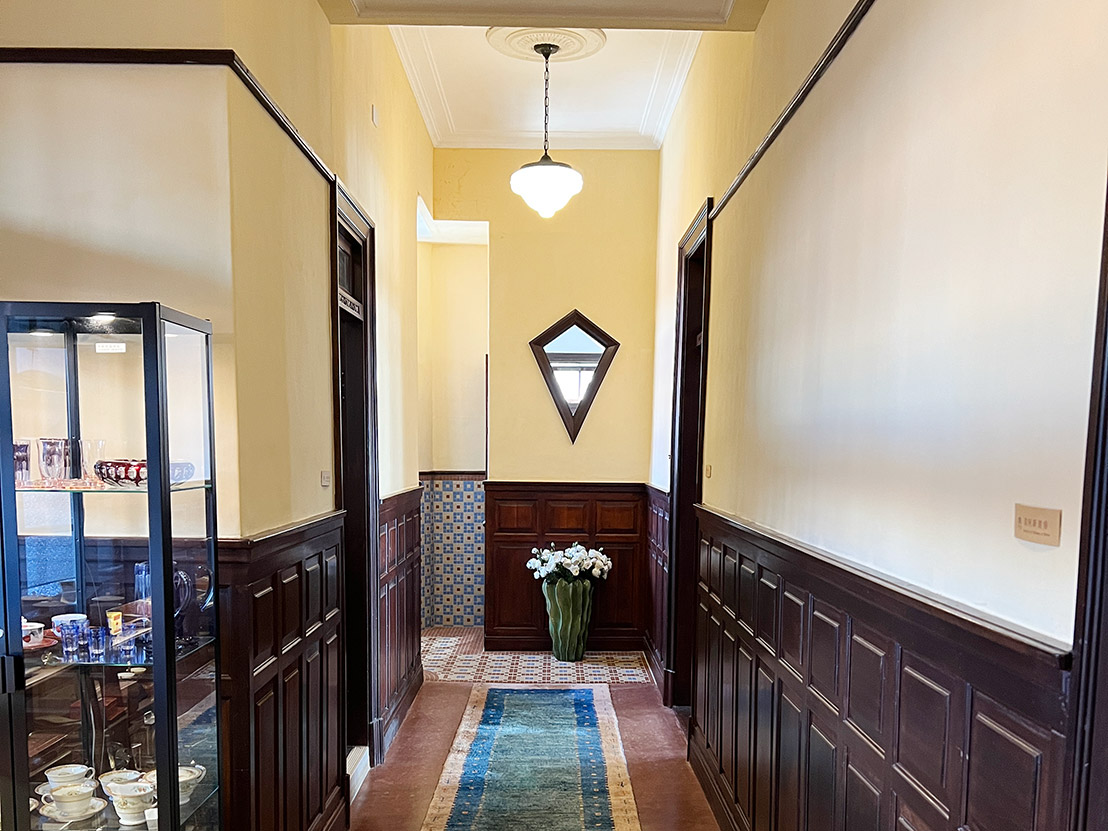
photo by our team

